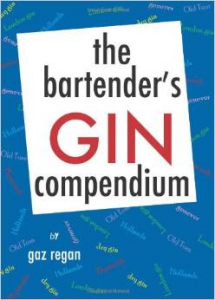 You walk into a saloon, belly up to the bar, and ask for a Dry Gin Martini, straight-up, no garnish, water on the side, no ice. The bartender asks if you want a particular brand of gin. You make your choice. You give it to her straight. “Brimelow’s Gin, please. The high-proof bottling if you have it, or…”
You walk into a saloon, belly up to the bar, and ask for a Dry Gin Martini, straight-up, no garnish, water on the side, no ice. The bartender asks if you want a particular brand of gin. You make your choice. You give it to her straight. “Brimelow’s Gin, please. The high-proof bottling if you have it, or…”
“Oh, we have the high-proof Brimelow’s alright,” the bartender tells you. “Good gin, too. Been a best seller since it hit the shelves back in 2003. Not that far back in gin terms, but the Brimelow family’s been in the gin biz since 1794, you know. Arthur Brimelow started the company. Bastard to work for, they say…”
You take a barstool, you sip your ice-cold elixir, you observe your problems being cleansed from your very soul, you watch as your focus sharpens, and the bartender, who has been waiting for this exact moment, says, “They added sage to the original recipe to make this bottling. That’s where you’re getting that sense of peace. It’s the sage.” Or maybe that’s not what she says at all. Maybe she tells you that the gin you chose is the only gin in the world that’s made in an Austrian hybrid still, and that each botanical is distilled separately. Or perhaps the bartender will tell you all about the origins of gin. About Dutch Courage. About Gin Lane. About Dr. Sylvius, the seventeenth century Dutch professor who created the world’s first gin. Or did he?
Some bartenders might quote from Casablanca when you order your Dry Gin Martini: “Of all the gin joints in all the towns in all the world…” Other bartenders might recite the old Ogden Nash poem, instead: “There’s something about a Martini…” and every now and then you’ll meet a bartender who tries to get you to switch your brand of gin. “If you usually drink Brimelow’s Gin, I’m going to suggest you try this new one, Hopewell’s Gin. It’s not quite the same, but it’s sort of in the same family if you know what I mean…lots of my regulars are switching to it.”